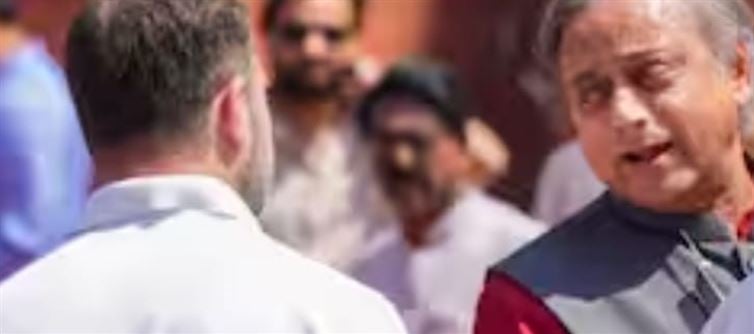
Senior congress leader and mp Shashi Tharoor has stirred political debate with an article published on october 31 on the opinion portal Project Syndicate.
The article focuses on “political dynasty” and how nepotism harms governance, sparking reactions from across the political spectrum.
The bjp seized upon Tharoor’s remarks, alleging that his criticism indirectly targets rahul gandhi and other dynastic politicians like Tejashwi Yadav.
🔹 Tharoor’s Key Points in the Article
Tharoor argues that dynastic politics undermines governance and weakens democratic institutions.
He writes that political power based on lineage rather than merit, commitment, or grassroots engagement leads to poor quality governance.
The congress mp highlights that when a candidate’s main qualification is their surname, it hampers political credibility and accountability.
Tharoor acknowledges the influence of the Nehru-Gandhi family, including Jawaharlal Nehru, Indira Gandhi, Rajiv Gandhi, rahul gandhi, and priyanka gandhi Vadra.
He notes that while their political role is tied to India’s freedom struggle, it also perpetuates the notion of leadership as a birthright.
🔹 BJP’s Response
The bjp used Tharoor’s comments to attack the congress, calling his statements an internal critique of dynastic politics within the party.
BJP leaders claimed that Tharoor’s article directly questions the legitimacy of rahul Gandhi’s leadership.
🔹 congress Leaders Defend the Party
Udit raj responded by saying that dynasty exists in every field—from medicine to business—and politics is no exception.
He cited examples like amit Shah’s son, mamata banerjee, Naidu, Pawar, and others to highlight widespread nepotism.
Pramod Tiwari defended the Nehru-Gandhi family, calling Nehru the most capable prime minister and emphasizing the family’s sacrifice, dedication, and merit.
Disclaimer:
The information contained in this article is for general informational purposes only. While we strive to ensure accuracy, we make no warranties or representations of any kind, express or implied, about the completeness, accuracy, reliability, suitability, or availability of the content. Any reliance you place on the information is strictly at your own risk. The views, opinions, or claims expressed in this article are those of the author and do not necessarily reflect the official policy or position of any organization mentioned. We disclaim any liability for any loss or damage arising directly or indirectly from the use of this article.




 click and follow Indiaherald WhatsApp channel
click and follow Indiaherald WhatsApp channel